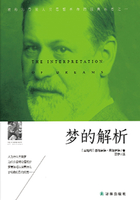In the region of Rottenburg, the peasants were already under arms on March 22.In the city of Rottenburg the rule of the honourables was overthrown by the lower middle-class and plebeians under Stephan of Menzingen, but since the peasant dues were the chief source of revenue for the city, the new government was able to maintain a vacillating and equivocal attitude towards the peasants.In the Grand Chapter of Wurzburg there was a general uprising, early in April, of the peasants and the small cities.In the bishopric of Bamberg, a general insurrection compelled the bishop to yield within five days.In the North, on the border of Thuringia, the strong Bildhausen Peasant Camp was organised.
In the Odenwald, where Wendel Hipler, a noble and former chancellor of the Count of Hohenlohe, and Georg Metzler, an innkeeper at Ballenberg near Krautheim, were at the head of the revolutionary party, the storm broke out on March 26.The peasants marched from all directions towards the Tauber.Two thousand men from the Rottenburg camp joined.Georg Metzler took command, and having received all reinforcements, marched on April 4 to the monastery of Schoenthal on the Jaxt, where he was joined by the peasants of the Neckar valley.The latter, led by Jaecklein Rohrbach, an innkeeper at Boeckingen near Heilbronn, had proclaimed, on Judica Sunday, the insurrection in Flein, Southeim, etc., while, simultaneously, Wendel Hipler, with a number of conspirators, took Oehringen by surprise and drew the surrounding peasants into the movement.In Schoenthal, the two peasant columns, combined into the Gay Troop, accepted the Twelve Articles, and organised expeditions against the castles and monasteries.The Gay Troop war, about 8,000 strong, and possessed cannon, as well as 3,000 guns.Florian Geyer, a Franconian knight, also joined the troop and formed the Black Host, a select division which had been recruited mainly from the Rottenburg and Oehringen infantry.
The Wuerttemberg magistrate in Neckarsulm, Count Ludwig von Helfenstein, opened hostilities.Without much ado, he ordered all peasants that fell into his hands to be executed.The Gay Troop marched against him.The peasants were embittered by the massacres as well as by news of the defeat of the Leipheim Troop, of Jakob Wehe's execution, and the Truchsess atrocities.
Von Helfenstein, who had precipitously moved into Weinsberg, was there attacked.The castle was stormed by Florian Geyer.The city was won after a prolonged struggle, and Count Ludwig was taken prisoner, as were several knights.On the following day, April 17, Jaecklein Rohrbach, together with the most resolute members of the troop, held court over the prisoners, and ordered fourteen of them, with von Helfenstein at the head, to run the gauntlet, this being the most humiliating death he could invent for them.The capture of Weinsberg and the terroristic revenge of Jaecklein against von Helfenstein, did not fail to influence the nobility.Count von Loebenstein joined the Peasant Alliance.The Counts von Hohenlohe, who had joined previously without offering any aid, immediately sent the desired cannon and powder.
The chiefs debated among themselves whether they should not make Goetz von Berlichingen their commander "since be could bring to them the nobility." The proposal found sympathy, but Florian Geyer, who saw in this mood of the peasants and their chiefs the beginning of reaction, seceded from the troop, and together with his Black Host, marched first through the Neckar Region, then the Wuerzburg territory, everywhere destroying castles and priests' nests.
The remainder of the troop marched first towards Heilbronn.In this powerful and free imperial city, the patriciate was confronted, as almost everywhere, by a middle-class and revolutionary opposition.The latter, in secret agreement with the peasants, opened the gates before G.Metzler and Jaecklein Rohrbach, on April 17, in the course of a general disturbance.The peasant chiefs with their people took possession of the city.They accepted membership in the brotherhood, and delivered 12,000guilders in money and a squad of volunteers.Only the possessions of the clergy and the Teutonic Order were pillaged.On the 22d, the peasants moved away, leaving a small garrison.Heilbronn was designated as the centre of the various troops, the latter actually sending delegates and conferring over common actions and common demands of the peasantry.But the middle-class opposition and the honourables who had joined them after the peasant invasion, regained the upper hand in the city, preventing it from taking decisive steps and only waiting for the approach ,of the princes' troops in order to betray the peasants definitely.
The peasants marched toward the Odenwald.Goetz von Berlichingen who, a few days previous, had offered himself to the Grand Elector Palatine, then to the peasantry, then again to the Grand Elector, was compelled on April 24 to join the Evangelist Fraternity, and to take over the supreme command of the Gay Bright Troop (in contrast to the Black Troop of Florian Geyer).At the same time, however, he was the prisoner of the peasants who mistrusted him and bound him to a council of chiefs without whom he could undertake nothing.Goetz and Metzler moved with a mass of peasants over Buchen to Armorbach, where they remained from April 30, until May 5, arousing the entire region of the Main.The nobility was everywhere compelled to join, and thus its castles were spared.Only the monasteries were burned and pillaged.The troops had obviously become demoralised.















